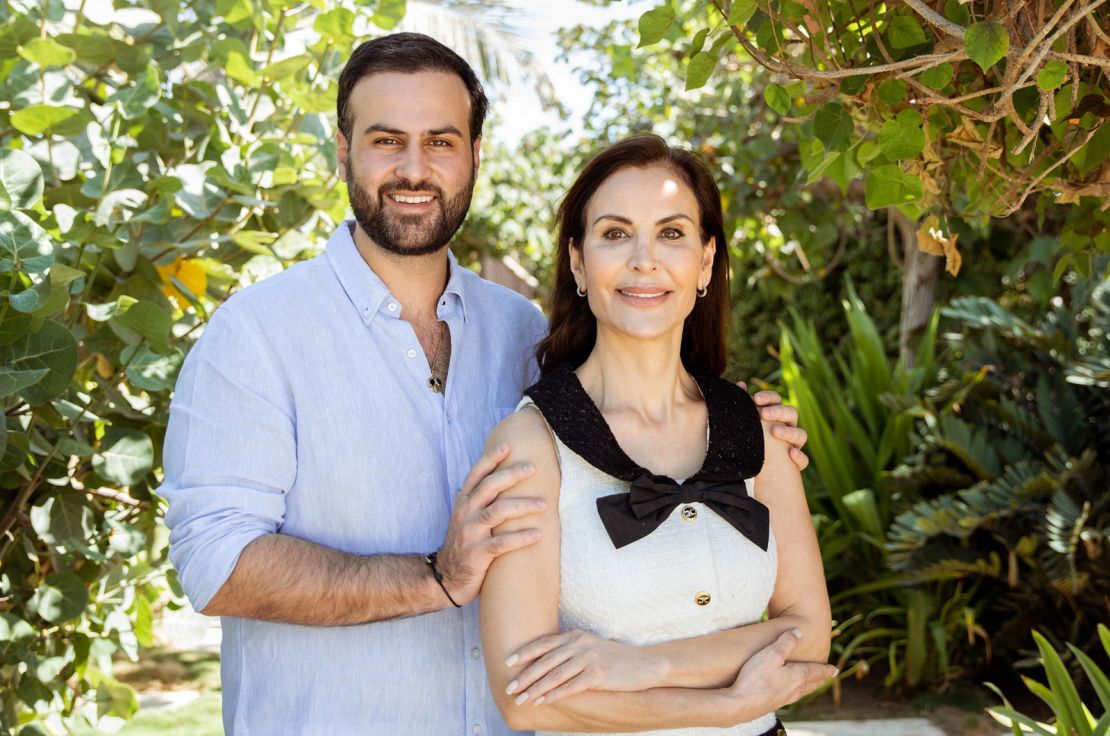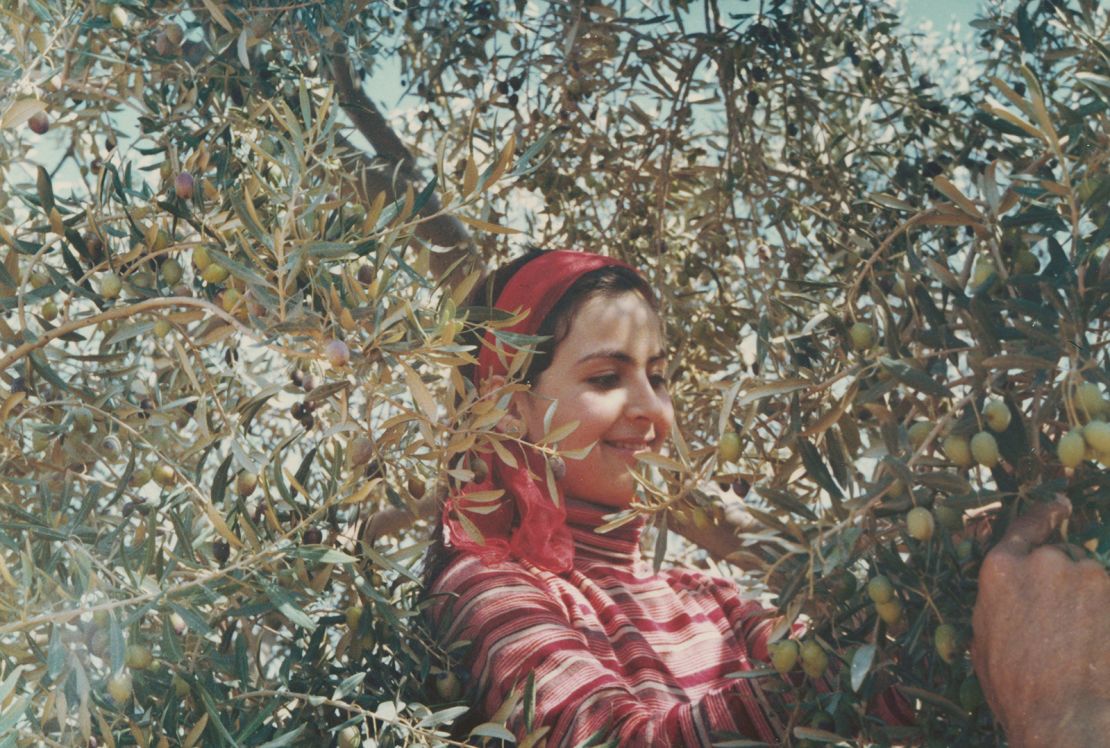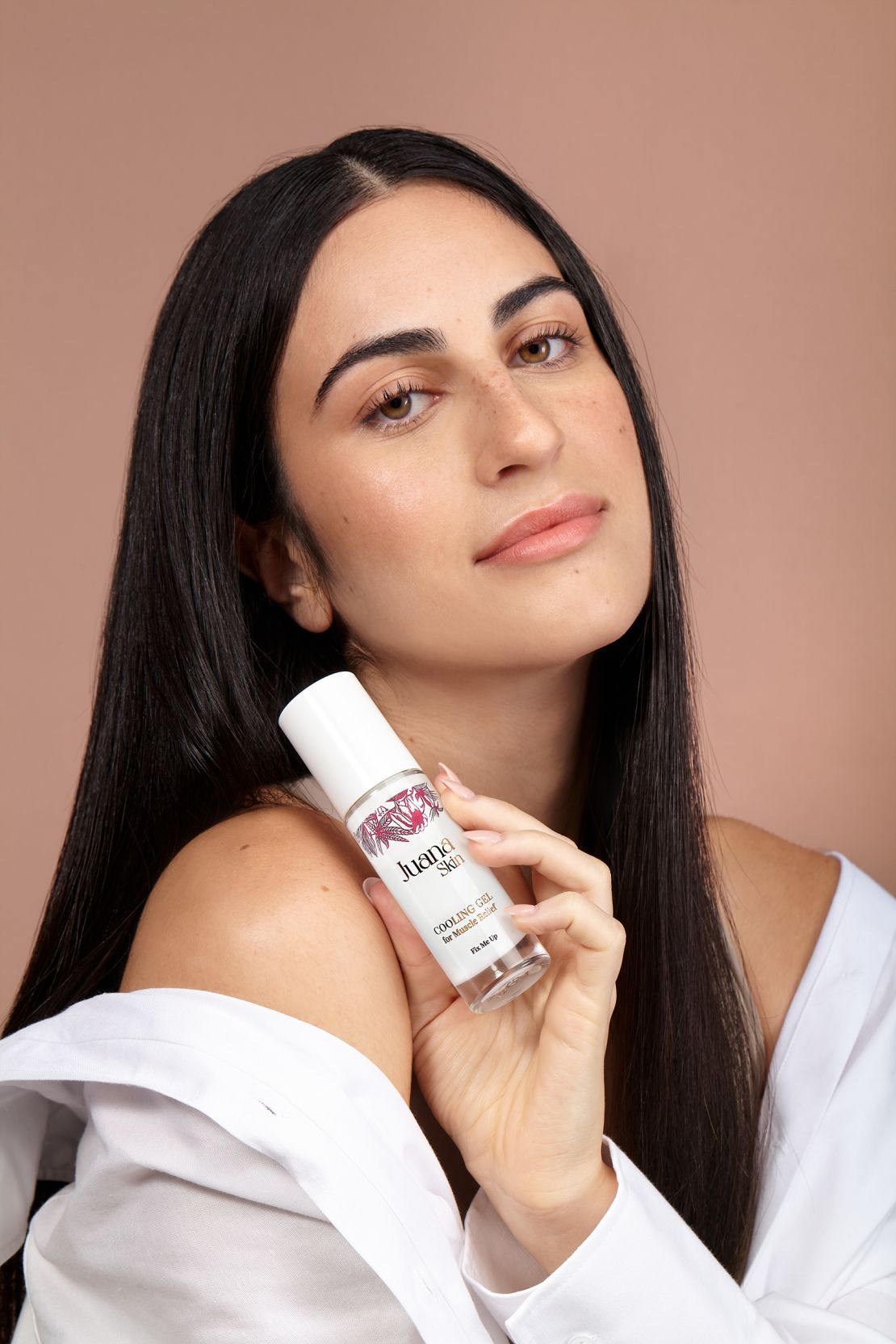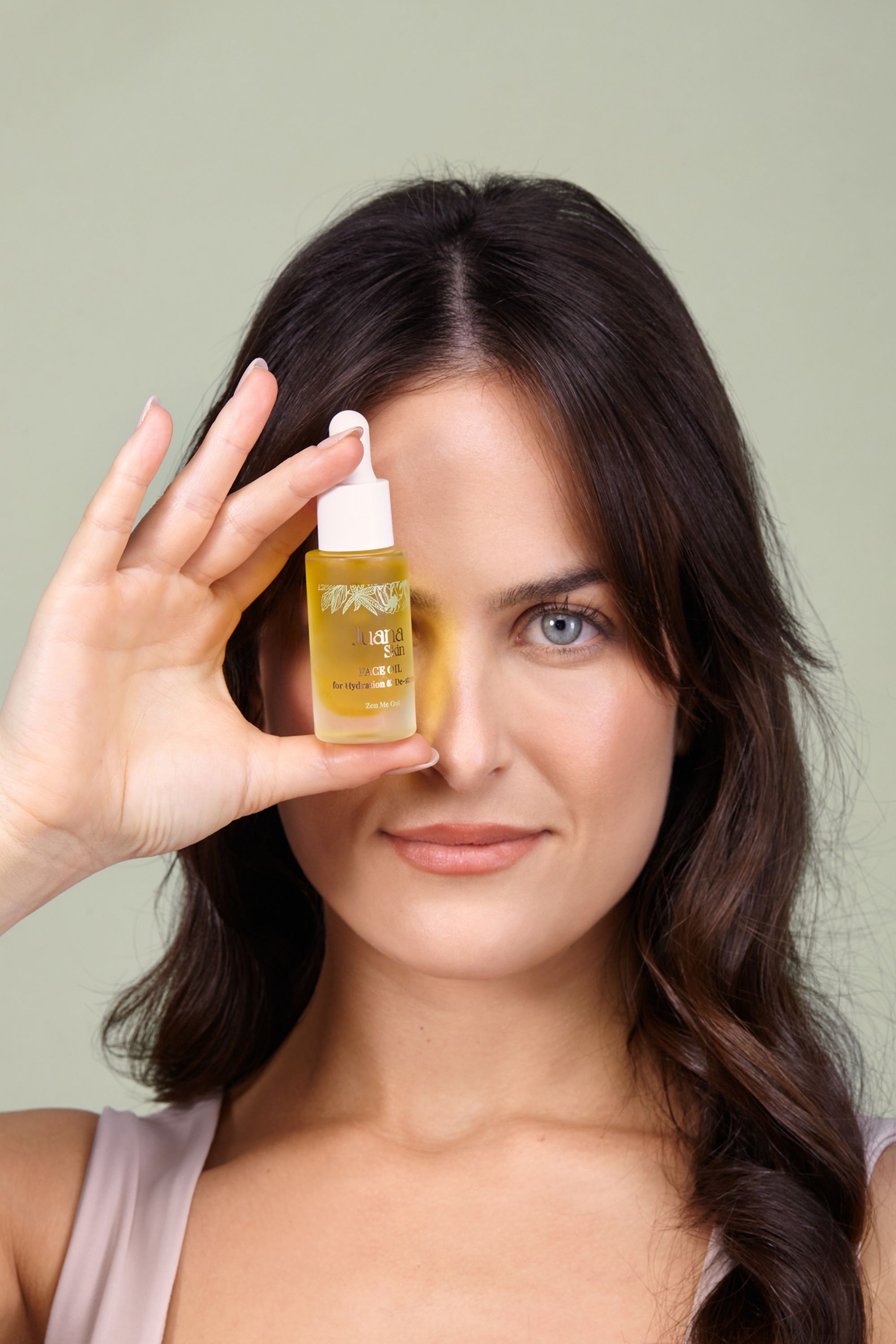When mother-son entrepreneurs Yann Moujawaz and Juana Martini launch their skincare brand in the United Arab Emirates this winter, they will be the first to market CBD-based products to a region well-known for its zero-tolerance approach to drugs.
Though a few nuances exist — cosmetics made with hemp seed oil are legal in Dubai, for example — the possession of CBD-based products is still largely prohibited within the UAE. (Hemp seed oil does not contain CBD.)
With the approval of Dubaian authorities, however, Juana Skin’s product line will bring CBD — or cannabidiol, which is found in the stem, leaves and flowers of the hemp plant — to consumers in the Middle East in the form of brightening moisturizers, night creams, face oils and body butters. Unlike its psychoactive cousin THC, or tetrahydrocannabinol, CBD does not produce a high, and has been shown to help alleviate skin disorders like eczema, psoriasis, pruritus or itchy skin, and inflammation.
Moujawaz and Martini could have taken the easy route and built their brand in markets where CBD-based beauty lines are already well established. According to a recent report from Data Bridge Market Research, the global CBD skincare market was valued at $952.9 million in 2021 and is expected to reach $7.58 billion by 2029.

But Moujawaz says he wasn’t interested in serving consumers already spoiled for choice. He wanted to blaze a trail and bring CBD’s health benefits to a new market that was closed.
“I wanted to go where no one else has dared to go,” he said.
A joint enterprise
While a student at the London School of Economics in 2013, Moujawaz was part of a team winning first place (and 5,000 euros in prize money) at the French economics and entrepreneurial competition LH Forum with a proposal to turn fruit scraps into a sustainable skincare brand. Moujawaz admits now that the idea largely repackaged the homemade skincare remedies his mother regularly made for her family from natural oils and food waste during his childhood in France.
It was a tradition rooted in Martini’s own childhood, when she lived on olive farms in Syria and made Aleppo soap, a Castile bar soap made from olive and bay laurel oils.
“I’m very passionate about natural products, especially oil-based solutions as I was born into a family that produced olive oil,” Martini said during a Zoom interview from Dubai. “I always watched my mother make all-natural remedies and I did the same for my children.”

After his LSE graduation, Moujawaz worked on major development projects in the Middle East as a principal consultant at the Boston Consulting Group based in Dubai. But the stress of his jet-setting lifestyle took a toll on his health; he was losing his hair, suffering from back pains and insomnia, and had his gallbladder removed.
“I had a moment of realization in which I said to myself that, however brilliant my career, it would never give me back the organs that I had lost,” Moujawaz, 32, said. “I understood then the real cost of a poor quality of life.”
At the same time, Martini was struggling to navigate life as a single empty nester back in Paris after all three of her kids had left the house and were living abroad.
Between his degrading health, burnout and his mother’s deepening depression, the wheels in Moujawaz’s head began to turn and he asked his mother to team up with him. Only this time, instead of orange peels and fruit scraps, they would create a brand using the family’s newfound all-natural remedy obsession: CBD oil.
During a family holiday to California in 2019, Martini had discovered the powerful anti-inflammatory, antioxidant properties of CBD oil — the way it soothed her eczema within hours and sped up the healing process of a scar.
“I’ve always used olive oil as the base for most of my remedies, but when I added CBD oil, my formulas took off on another level,” said Martini, who keeps handwritten records of different formulas in a notebook. “I was really so impressed.”
Moujawaz, too, became a convert as CBD helped ease his insomnia and stress levels. He read up obsessively on its benefits, learning how they’ve been shown to help the body’s endocannabinoid system — a cell-signaling network that regulates everything from sleep, appetite, memory, fertility and skin health — run smoothly.
Beyond dispelling the myths and misinformation regarding CBD, Moujawaz says it was key to highlight these benefits. The brand’s strategy hinges on positioning its product line less as beauty offerings and more as natural, pharmaceutical-grade treatments to help with skin disorders.
Considering the region’s harsh desert environment and aggressive culture of indoor air conditioning, proving demand for such treatments wasn’t difficult. One study estimates the prevalence of atopic dermatitis or eczema in Dubai to be at four to five percent, double that of the global population.
Maintaining high standards
But the process of creating products that would both clear local drug bans and meet regulatory requirements took time — and patience. Moujawaz and Martini teamed up with registered organic hemp farms in Spain and Portugal to source their CBD strains, and pumped their products with a potency two to four times the strength of average Western market products to ensure efficiency. During the product development process, they implemented bans on some 2,000 filler ingredients, while approved formulas were put through clinical trials in France and Germany. He describes the laborious process as a “blessing in disguise.”
“Because the standards were so high here (in the UAE) and we had to prove that we were a brand with strong medical pharmaceutical value, we pushed ourselves on a daily basis in the reformulation of our products.”
For extra assurance, the pair also took their products to the US-based watchdog Environmental Working Group, a non-profit group that works with scientists and toxicologists to evaluate the safety of consumer products, and received EWG Verified certification, a stamp of approval given to products that meet its standards for health, safety and transparency. Along with being the first CBD-based skincare brand to receive approval for sale in the United Arab Emirates, Juana Skin is the first CBD skincare brand out of the EU and Middle East to become EWG-certified. Products are paraben and fragrance-free, and come in glass bottles packaged in hemp bags.
While Juana Skin may have cleared the administrative hurdles, Amna Abbas, a Middle East beauty and health consultant at market research group Euromonitor, says its next big obstacle will be successfully convincing Emirati consumers that CBD is safe and effective
“In this region, the awareness and knowledge of cannabis is not there yet,” she said. “If you say cannabis, it has a negative perception.”

Moujawaz understands this well, which is why, when Juana Skin products officially launch in the UAE this winter, they will be first available at healthcare and dermatology clinics where consumers can ask questions and learn more about CBD from trained professionals. Moujawaz also organizes educational conferences in the region to demystify CBD, one of which included a recent sold-out “TED Talks”-style event at private member’s club The Arts Club Dubai
In more mature CBD markets such as the UK, US, and France, Juana Skin products are already available online. This summer, Juana Skin also debuted at the Lanserhof, an exclusive private health clinic in London. The CBD moisturizers, oils and body butters are used for hour-long facial and massage treatments.
Abbas also points out though many women in the region tend to wear full-faced makeup, the pandemic has generated more interest in preventative skincare and more natural looks. This market shift could play out in Juana Skin’s favor.
“Post-pandemic, there is a greater interest in overall wellness and self-care in the region,” she said. “And that includes a shift away from color cosmetics and towards looking after the skin.”
For Moujawaz, the launch of Juana Skin is also about breaking free from different molds. He also notes that female plants, which produce the highest concentrations of cannabidiol, are the main source of CBD.
“For my mother, it was an opportunity to show that it’s never too late to start again,” Moujawaz said. “She proved quite the contrary, that you can entertain the craziest idea that exists, and launch a cannabis company in the Middle East.”



